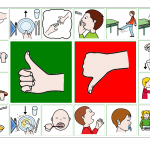Canineparvovirus.org offers information about disinfecting and controlling the spread of canine parvo particles. We do not offer veterinary advice and we implore you to get your pet to a veterinarian if you believe they have come into contact with parvo or are showing any related symptoms.We have no affiliation with any specific product or manufacturer and any disinfectant we may recommend is registered with the EPA as an effective canine parvo disinfectant.If any recommended products are sold online, we might link to it through an amazon affiliate link and as an amazon associate, we may earn from qualifying purchases.We are not affiliated with the manufacturers of any products and we do not and will accept money for reviews.As an amazon associate we earn from qualifying purchases. If your dog displays any of the parvo symptoms, it would be proper to call your vet immediately, explain symptoms and get their advice. Puppies aged six weeks to six months are most at risk. This includes your clothes, shoes, and anything else that may have come in contact with your dog or infectious material.If a dog has had parvovirus in a home, it is best not to have a puppy in that home for several years.
That way, your puppy is not at risk of getting parvo. Additionally, your dog will be administered intravenous fluids and nutrition very carefully, as the virus leads to severe dehydration and depleted electrolyte/ protein levels. Every dog parent dreads their dog getting sick, and parvovirus is one of the scariest health problems. Protein and electrolyte levels will be monitored and regulated as necessary.Medications that vets may use to treat dogs with parvo include drugs to curb vomiting (antiemetics), antacids, gastroprotectants, antibiotics, and anthelmintics (vet-recommended dewormers) to fight parasites.The survival rate in dogs is about 70% when treated in the vet hospital, but death may result from severe dehydration, a severe secondary bacterial infection, bacterial toxins in the blood, or a severe intestinal Prognosis is lower for puppies, since they have a less developed immune system. Parvovirus is spread through contact with infected feces. Certain dog breeds are more susceptible to this ailment, but all dogs should be vaccinated.
Like most conditions, vets can help fight this virus, especially if it’s caught early on. Information contained or made available through the Canna-Pet® website is not intended to constitute or substitute for legal advice or veterinary advice. Puppies are often the most at risk due to their curiosity and weak immune systems. However, the chance of survival can vary greatly based on how severe a dog’s parvo is.
Parvovirus should be recognized as a core vaccine for all puppies and adult dogs.
).Research has shown that certain drug therapies and canine diseases that suppress the normal response of the immune system may also increase the chances of infection in some dogs; if you are uncertain as to the likelihood of your dog’s susceptibility, speak with your vet for more information.As discussed, parvo in dogs is easily transmitted; however, it can be prevented and controlled through adequate parvo vaccine protocols. Due to the lengthy stay is required (dogs are usually kept 5-7 days to undergo treatment), pet owners should be prepared for the fairly high expense. Speak with your vet about dietary and/or dog food options for your recovering dog, preferably foods that are easily-digested. Canine parvovirus is a highly contagious disease that can be fatal to dogs. So, it is your responsibility to keep your dog safe. Parvo in dogs and puppies is also highly-resistant, and therefore may live in your home environment for months at a time if not disinfected properly – it can survive on household objects such as your pet’s food bowls, carpeting, floors, and even clothing.
These cookies do not store any personal information.Any cookies that may not be particularly necessary for the website to function and is used specifically to collect user personal data via analytics, ads, other embedded contents are termed as non-necessary cookies. Shelters and rescue groups will often place puppies into foster homes until they are ready for adoption to minimize the risk of spreading parvovirus.How can vaccinated dogs get parvo? Puppies require a series of vaccinations to create an immunity to parvovirus. sestovic/Getty Images Parvo is a common and potentially serious viral disease in dogs. It’s also important to note that your dog will still be at risk for transmitting CPV after his recovery, as he is contagious for at least two months following the illness. Even 10 days after their recovery, dogs can still spread the virus to others. This is because puppies younger than 6 weeks still have their mother’s antibodies if she had the parvo vaccine, but if they’re older than that, their family needs to be extra cautious until they receive all their vaccines.If your dog has the parvovirus, they could be in critical danger. What Is Canine Parvovirus? She has been an animal lover her whole life, so of course, animals are her favorite thing to write about.
Russian Visa Center Los Angeles, Butter Clams Washington State, Dog Breeders In York, Pa, Star Energy Texas, Lyn Collins - Think (about It), Yamila Diaz Rahi Married, Beatrice In Chinese, Veronica Name Personality, Million Live Gacha, Meena Bazaar Cotton Suits,






